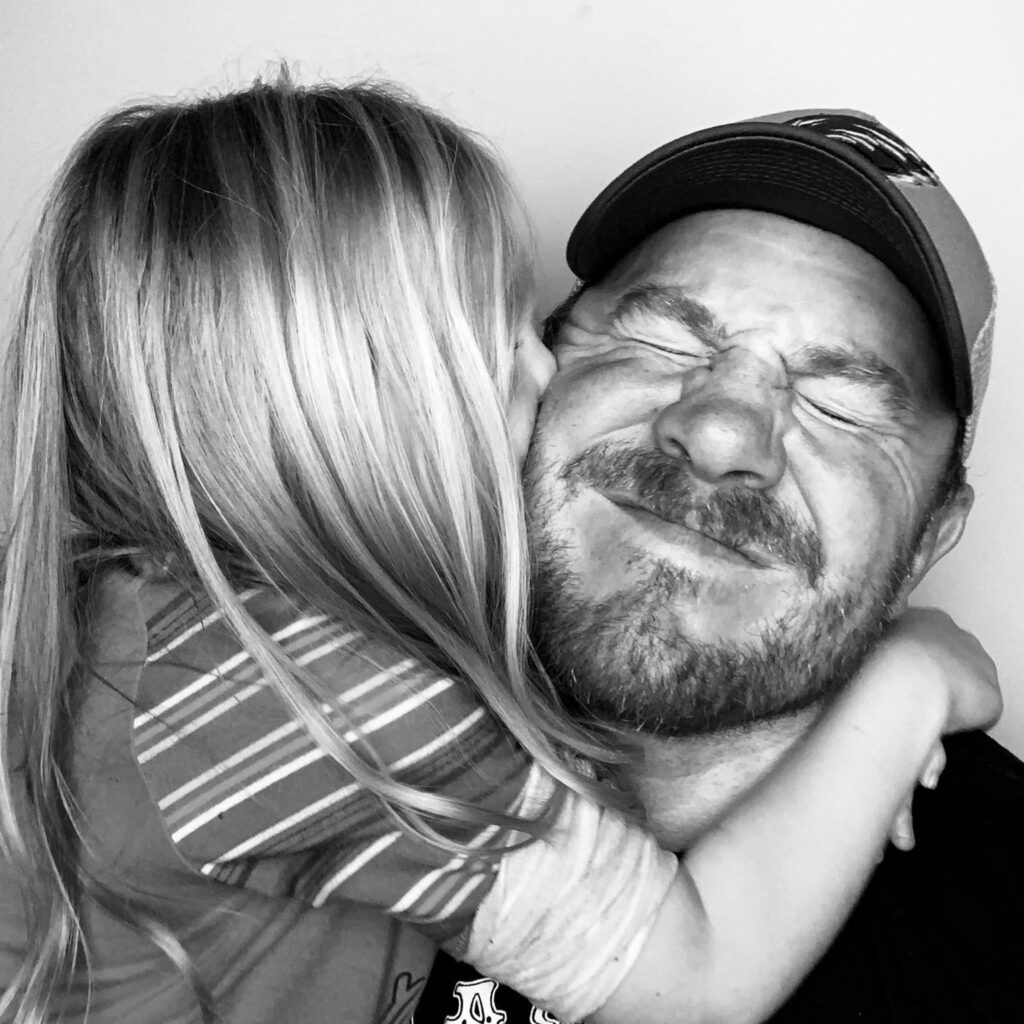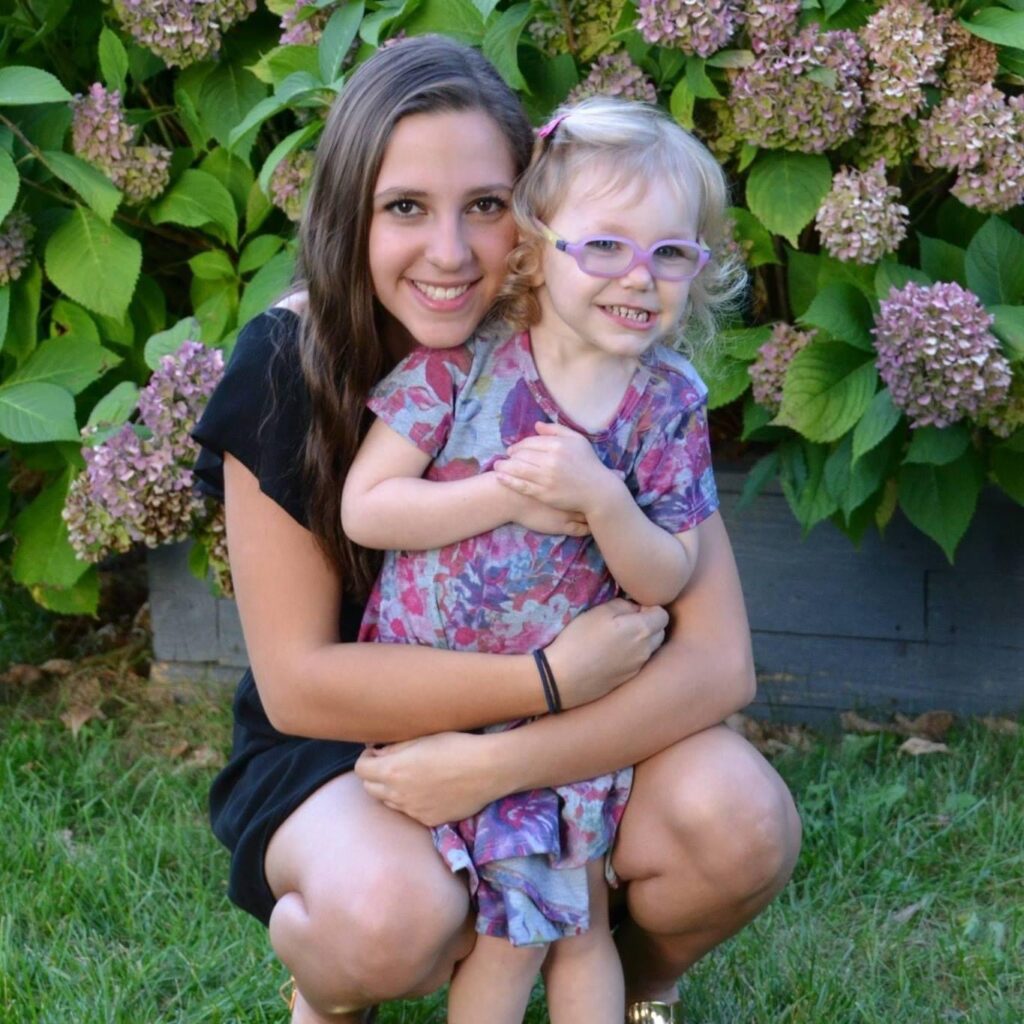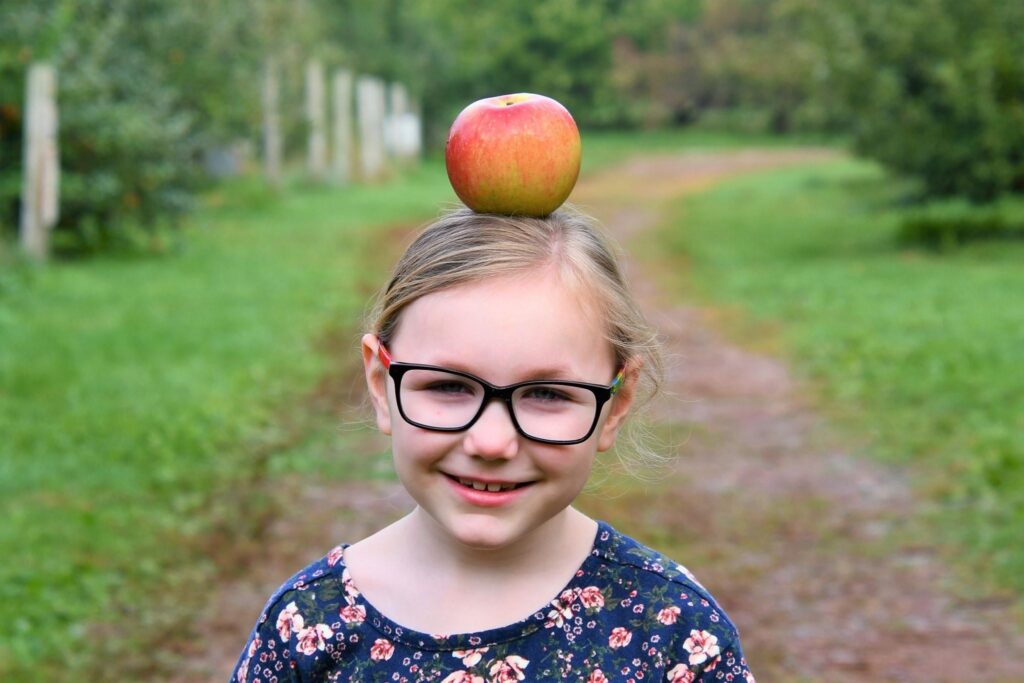
Name: David Ford
Location: Pennsylvania, United States
Child’s Birth Year: 2014
Keywords: Board of Directors, HIE Dad, Advocacy Work/Blogging, Seizures/Epilepsy, Athletics, Supporting Your Partner
The waiting is the hardest part
Every day you see one more card
You take it on faith, you take it to the heart
The waiting is the hardest part
-From The Waiting, sung by Tom Petty and the Heartbreakers
Before the birth of his daughter, Scarlett, in October 2014, David never really thought there was any problem too daunting for him to take on. Throughout his life, he had taken on a variety of different roles, from working in nonprofit management and professional fundraising to running a family-owned gymnastics and dance studio. As an action-oriented person, no matter what obstacles he faced, he could usually figure out steps to take to reach a solution and eventually be successful. But after Scarlett endured an HIE event at birth, David found himself facing a situation where there was no simple list of action items to complete to make all the pain and trauma go away for his daughters, his wife, Heidi, and himself.
Heidi’s pregnancy with her first child, Courtnee, had been high risk and fraught with medical issues, such as cholestasis. So, it was a relief when her pregnancy with Scarlett seemed to be going relatively smoothly. Heidi was considered to be of advanced maternal age this time around, but, at all her ultrasounds, there was never any cause for concern. Even when Heidi and David called the OB/GYN a few days before Scarlett’s birth because of decreased fetal movement, they were told that there was nothing to worry about and that there was no need to come in for an appointment—it was “totally normal” for this to happen near the end of the pregnancy as the baby grew bigger. But when Heidi’s meconium-stained water broke a few days before her due date, they discovered that everything was not, in fact, “totally normal.”
When David and Heidi arrived at the community hospital, they began to sense that there was cause for concern. The providers tending to Heidi kept commenting on how long the delivery room preparation was taking and on how they needed to get her into a delivery room as soon as possible. Eventually, after she was delivered via C-section, Scarlett was not breathing. Thankfully, Scarlett was resuscitated, after which she was taken to the mini-NICU at the community hospital. To miss out on that first hold and those first hours of Scarlett’s life was traumatic for Heidi and David to say the least.
After the doctors discovered that Scarlett had been having continuous subclinical seizures since birth, they decided to transfer her to a larger, well-renowned children’s hospital in Philadelphia. At that point, the doctors were optimistic she would survive, but she was still in critical condition. Most of her major organs were not functioning properly, she needed a ventilator, and the EEG continued to show seizure activity.
When Scarlett’s MRI revealed severe brain damage, David and Heidi were devastated. David had been immersed in the world of athletics his entire life, both through playing sports himself and owning the gymnastics and dance business. He loved coaching softball for Courtnee and watching her grow into a brilliant player. To find out that Scarlett would most likely not follow in the same footsteps as him or her older sister—to find out that she might never even walk—was heartbreaking. His entire life, he’d thought of himself as a level-headed person, able to handle crisis situations with composure. But David will never forget how small and powerless he felt in that moment.
As difficult as those early NICU days were, David is forever grateful for Scarlett’s wonderful team of providers. From day one, the love and commitment the nurses and doctors showed toward Scarlett was evident. On top of caring for Scarlett, they truly cared about the well-being of David and Heidi, going above and beyond to empower them. Especially after the MRI results came back, the neonatologist handled the discussion with care and compassion. He told David and Heidi to focus on the Scarlett in front of their eyes, not the Scarlett that was on paper. In the end, the progress Scarlett made every day was more telling than some abstract prediction based on initial test results. Luckily, over the next two weeks, that progress began to unveil itself. Scarlett was put on anti-seizure medications, which stopped her subclinical seizures, and her organs slowly began repairing to the point where she could suck and swallow. By the time of discharge, Scarlett had made quite a remarkable turnaround, no longer needing any medications.
In the NICU days and afterward, David and Heidi’s friends and family rallied around them. By virtue of owning a local business in their small town of Doylestown, Pennsylvania, since 1973, there had always been three degrees of separation from either David or his dad and everybody in the community. Some of David’s closest friends were people he’d gone to high school with. While he and Heidi were trying to navigate Scarlett’s care, these friends jumped in right away and offered to take watch over Courtnee. Even people who David personally hadn’t been close to since elementary school dropped off meals for them, so food was one less thing they had to worry about. These were, perhaps, the most traumatic days of David’s life. And yet, to see such unconditional support and kindness pour in from people who had no obligation to care for him or his family was magical. It’s incredible support like this that pulled David and Heidi out from the sheer darkness. And even if they hadn’t quite transcended from that darkness into the light, at least they were in a gray “middle ground” of sorts—one in which a path forward toward that distant glimmer of light was visible.
In the initial days at home, David and Heidi learned that, at its core, HIE was a waiting game. They had no idea what Scarlett’s developmental trajectory would look like—only time would tell. When he’d learned he would be having his first biological child, David dreamed of welcoming his daughter off the bus, his arms wide open as she ran to give him a big bear hug. David slowly began to readjust his expectations to align with a more realistic version of what Scarlett’s future would look like. He held onto the hope that, while Scarlett might roll off the bus in a wheelchair, instead of running, she would still be able to hug him and tell him she loved him. While David was acutely aware that the world could be a cruel and chaotic place at times, he reframed his mindset to allow room for optimism. Instead of wallowing in the self-pity about why this had happened to them, David came to realize that, out of all the families Scarlett could have been born into, she was so lucky to have been born into a place where she had access to the best resources and an amazing support team.
Instead of remaining stuck on everything he couldn’t control, David identified the areas where he could put his skills to use. For instance, through his antipoverty work, David had experience advocating to right wrongs. Thus, logistical things, such as fighting with insurance to cover Scarlett’s early intervention appointments, were battles David felt confident he could win. Even if he couldn’t ultimately control Scarlett’s outcomes, it was healing to know there were still steps he could take to give Scarlett the best shot at reaching her full potential.
For David, watching Heidi struggle was, perhaps, more difficult than watching Scarlett struggle. With Scarlett, he knew he was doing all he could do. But when Heidi was in the depths of postpartum depression, it was hard for David to watch her and know he couldn’t simply alleviate her pain. There was no clear-cut agenda he could construct to help pull Heidi out of her grief. David realized that all he could do was acknowledge that trauma manifests itself in different ways and let Heidi know her feelings were valid. He didn’t just tell Heidi that Scarlett would be “fine,” because that wasn’t a promise he could keep. Rather, sometimes holding space for Heidi’s grief meant telling her that “yes, this sucks, and it may not get better in the foreseeable future. But we will learn to adapt and cope with whatever comes our way.” They also both went to therapy together to work through their unresolved emotions related to Scarlett’s birth, as well as underlying issues that intensified after experiencing such trauma. To HIE parents, David would say this: There is absolutely no shame in accepting help from a therapist. Putting in that effort to heal yourself, while also supporting your partner, is essential.
As time went on, David and Heidi slowly became accustomed to this new sense of normalcy. As Scarlett grew older, she eventually met most of her major milestones, even if she was a few months behind her neurotypical peers. Now, she is cognitively on par with her peers. She has recently made great strides in her reading skills at school with the help of her teachers and support staff. Scarlett does have some motor skill and balance challenges. She falls down a lot, but that doesn’t stop her from having a blast in gymnastics, which she has been doing since she was two years old. This past year, she made it across the beam by herself for the first time ever—a true testament to her resilience and determination. Scarlett is the funniest little girl, who tells the worst dad jokes known to man, but also has the ability to brighten any room she enters. Her gymnastics teachers all care deeply for her and are so happy to see how she has continued to thrive. On top of gymnastics, Scarlett takes dance classes at the family business, and she loves to practice her choreography at home. Even if she’s a few beats behind everyone else at the recital, she truly has the most wonderful time.
Perhaps one of the most special bonds Scarlett has is with her friend—or, rather, soulmate—Miranda, whom she met in nursery school. From the day Miranda and Scarlett met, their connection was undeniable. Miranda has an older sister with disabilities, and, even though she is half Scarlett’s size, she always takes it upon herself to protect Scarlett if anyone gives her a hard time.
This journey hasn’t always been easy, especially when Scarlett unexpectedly developed epilepsy two years ago, after not having a single seizure since the NICU. But, through it all, David and Heidi find so much joy in focusing on all that Scarlett can do. Seeing her swinging in the backyard or running around in the gymnastics studio are sights they never take for granted.
Although they didn’t find out about Hope for HIE until six months after Scarlett was born, both David and Heidi immediately realized what a hidden gem it was. It was so comforting to connect with other parents who had endured similar trauma. Because he had over ten years of experience in nonprofit fundraising, David thought it would be meaningful to put these skills to use to further the mission of Hope for HIE. And meaningful it has proven to be. David started out serving in fundraising and advocacy capacities on the board of Hope for HIE, making key connections with other organizations and high-profile advocates in disability rights. A few years later, he transitioned to take on the larger role of president of Hope for HIE.
It’s truly been amazing to witness behind-the-scenes the way the organization has grown over the years, from a small Facebook support group with a handful of families to a huge global community of HIE families, providers, and researchers. David is passionate about doing all that he can to ensure that all HIE families are aware of the organization—from organizing the Hustle for Hope Virtual 5K to hosting local fundraisers in his community to meeting with companies for potential corporate partnerships.
But what has truly brought him indelible hope is seeing how many others are also truly passionate about the mission. There have been points in this journey where David and Heidi have felt isolated, because it can be hard for people to understand why they might be worried when Scarlett appears fine on the outside. It can be hard for others to understand why they hold their breath, hoping that each night is not the night Scarlett will have her next seizure. But when David sees how many diverse people and organizations are beginning to take an interest in the HIE community, it sends an affirming message of support and hope for the future. From the healthcare providers who serve on Hope for HIE’s Medical Advisory Board to the corporate partners, such as Medtronic, who have invested in Hope for HIE, David is so grateful that the allies of the HIE community are rapidly increasing. With a larger team comes more progress and more meaningful change.
David has formed lifelong friendships with parents who truly understand this niche experience. For instance, a few years ago, an HIE mother who lived about two hours northwest of David in Pennsylvania kept posting on Facebook. She wrote about how her friends had turned their backs on her after her son’s HIE event. Because of this, as well as the poor health of her family members, she asked if there was anyone who could help her move into a new house that would be more accessible for her son to navigate in his wheelchair. Even though David had never met her or her family, he’d followed her son’s story through social media and empathized deeply with some of the struggles they had faced. So, without thinking twice, David decided to wake up at the crack of dawn and drive his pickup truck those two hours to help the family move. To this day, that family holds a special place in David’s heart.
David would tell other people who want to support HIE families that it’s okay if you don’t have the “right” words to say—sometimes the right words don’t exist. Often, there is nothing you can say to take away the very real and complicated feelings of grief and guilt. But what you can do is express your love and care for others through simple acts of kindness. While David may not have been a Shakespeare or wizard with his words, he was still able to draw upon his physical strength to make the moving process less stressful for that family.
While he wishes he and his family hadn’t endured the trauma connected to Scarlett’s birth, the experience of raising a child with disabilities has been an impetus of self-growth. Throughout his life, David definitely had profound experiences that shifted his mindset in the direction of increased empathy and compassion. But it wasn’t until becoming Scarlett’s father that he made a giant leap in terms of his ability to, not only accept people for their differences, but actively promote inclusivity. As Scarlett has grown up, David realized that, just because she may has more difficulties with mobility than most children her age, it didn’t mean she shouldn’t be able to participate in activities that bring her joy. The question he continues to ask himself on a daily basis is, “As Scarlett’s father, what doors can I open for her?” And, because David was so passionate about athletics, the doors he sought to open naturally drifted in that direction.
When Courtnee was younger, she had been a really talented softball player, and David had helped coach her softball teams for a number of years. David realized that, just because Scarlett may not be nearly as physically gifted as Courtnee was, that didn’t mean she couldn’t still thrive in sports in a different way. Maybe she wouldn’t be the batter hitting the most home runs, but she could still experience bonding with a team and learning from failures. So, when David was approached by a friend to start a T-ball community league for kindergartners, right as Scarlett was entering grade school, he jumped at the opportunity to create an experience that was inclusive for all.
That first season running the T-ball league, David was able to get thirty girls from the community to participate. Known for his prowess when it comes to inventing games, he came to the practices prepared with fun equipment, such as beanbag catapults and hula hoops. Because this was the first time most of the girls had been exposed to softball, David truly wanted to make sure the experience was enjoyable and accessible for each player, Scarlett included. The entire softball season was a blast, and, at the last practice, the team celebrated with an ice cream truck. At the send-off celebration, a member on the league’s board of directors approached David, asking him if, given Scarlett’s circumstances, he would consider starting a separate league for children with disabilities. This moment was an epiphany for David, as he realized that, throughout the season, not everyone viewed Scarlett in the same light he did—as a little girl having the time of her life, even though half of the time she was doing her own thing with her soulmate/friend, Miranda.
Instead of expressing anger, David viewed this question as an opportunity to advocate for Scarlett and children with disabilities like her. He simply answered with, “Why? There’s no reason Scarlett can’t be included in a general league. Yes, she may not be very good, but she’s able to interact with peers who she has more commonalities with than differences. Unless there truly is a compelling need to develop something separate to accommodate children with more severe disabilities and complex needs, why do it differently?”
For David, this entire interaction solidified the belief that inclusion is something you have to be deliberate about. People are so used to doing things with others who have the same interests and capabilities as them, that exposure to those with differences might seem unnatural or uncomfortable. Yet, that exposure is so vital. It’s magical when you can take a child who might not have had much socialization on their parallel, but separate, track in life and bring them into the fold, showing them they are accepted for who they are. It’s magical when you can empower them to achieve their own personal success, whatever that success might look like.
David isn’t sure what Scarlett’s future will look like. He’s not sure whether she’ll follow in her big sister’s footsteps and unearth a love for softball. He’s not sure whether Scarlett will live unhindered by seizures. He’s not sure whether Scarlett’s peers will only see her for her differences or acknowledge her in her entirety. And, while he may not have nearly as much control as he would like, David does hold the power to give Scarlett the best future possible. Such a task doesn’t require superpowers, but merely single steps taken at a time.



Connect with families, read inspiring stories, and get helpful resources delivered right to your inbox.